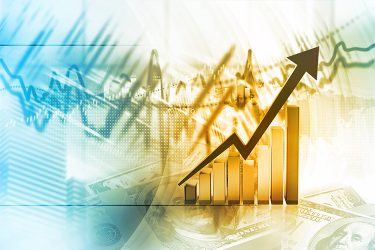Boom times for pharma M&A
Posted: 18 February 2021 | James Baillieu (Bird & Bird) | No comments yet
Global mergers and acquisitions (M&A) activity last year was expected to decline from 2019 levels, mainly due to the COVID-19 pandemic and resulting uncertainty around the global economy, trade tensions between the US and China, and the presidential election in the US. However, James Baillieu from Bird & Bird reveals that this was not the case in pharma. Here, he shares the biggest deal trends in the sector and what is on the horizon for the coming year.


THE LIFE SCIENCES industry has been instrumental in the response to the COVID-19 pandemic, with key industry players including Pfizer/BioNTech, AstraZeneca/Oxford University and Moderna racing to develop vaccines, and others developing antibody tests and other treatments. Given the severe impact of the pandemic, you would be forgiven for thinking that M&A activity in the sector may have ground to a halt in 2020. However, while deal activity temporarily slowed as the pandemic took hold, there was a swift and robust resumption of M&A activity after dealmakers became confident working remotely.
This is perhaps not as surprising as it first seems because the drivers behind pharma M&A still apply. Long-term demand for healthcare continues to rise, driven by ageing populations and chronic disease in the West, as well as increasing demand resulting from higher incomes in the East. Technological developments – ranging from gene therapies, CAR-T therapy and CRISPR to artificial intelligence (AI) and machine learning, to name just a few – are driving new waves of innovation to tackle the world’s healthcare needs in ways that were unimaginable a few decades ago.
Against this backdrop of increasing demand and rapid technological innovation, biopharma companies must continually replenish their R&D pipelines as patents on their most profitable products expire and generic competition impacts revenues. Small biotech companies – often backed by venture capital – fund the initial and riskiest stage of development with big pharma then acquiring the most promising companies and products that demonstrate potential, usually once early-stage clinical trials have been completed. Big pharma can fund these acquisitions using their cash-rich balance sheets. Sales also make sense for smaller companies and their shareholders as big pharma have both the cash resources to fund expensive late-stage clinical trials and the necessary expertise to navigate the complex regulatory pathways to market.
If you dig behind the headlines, it is easy to spot a few key trends in the sector.
Disruption and the rise of tech
For years now, there has been a proliferation of “healthtech” companies and big pharma has grappled with the disruption caused by big tech and data. This has led to a blurring of industry lines, with pharma companies buying tech companies to digitalise their offerings and big tech companies breaking into the healthcare market.


Deals can be seen across several areas: for example, the significant growth of telehealth has led to a wave of deal-making as companies seek to gain scale, with Teladoc Health being particularly active, acquiring fellow telehealth provider InTouch Health for $600 million in January 20201 and then Livongo for $18.5 billion in August 2020.2
AI and machine learning are disrupting traditional drug development by accelerating tasks such as drug discovery, clinical trials and data analysis. Improved software and apps, as well as improvements in internet speed and connectivity, have enabled the delivery of medical care from home and the development of services that ‘wrap around’ the care being provided to patients. In the ‘software as a medical device’ space, Novartis acquired Amblyotech, a US startup that combines three-dimensional (3D) glasses and video‑game software to treat amblyopia (more commonly known as lazy eye).3 Meanwhile, Biofourmis – which uses analytics, AI and wearables to remotely monitor heart failure patients – acquired Gaido Health, an oncology-focused patient-monitoring platform, from Takeda.4
The next round of mega mergers
Mega mergers enable big pharma to bolster their portfolios and diversify into more profitable and higher growth areas (such as rare diseases) while driving economies of scale and reducing costs. The pharma sector has seen its fair share of mega mergers over the years: think Merck/Schering Plough, Pfizer/Wyeth or Glaxo Wellcome/Smithkline Beecham in years gone by and more recently Bristol-Myers Squibb/Celgene and AbbVie/Allergan, to name just a few.
The post-pandemic wave of mega mergers has perhaps already kicked off with AstraZeneca’s announcement in mid-December that it will acquire US rare disease specialist Alexion for $39 billion.5 The bulk of Alexion’s sales come from its antibody therapy eculizumab (Soliris), a $500,000-a-year treatment for a rare and life-threatening blood disorder called paroxysmal nocturnal haemoglobinuria. Many analysts have predicted that this deal is likely to trigger another wave of consolidation.
Other big-ticket deals in 2020 included Gilead Sciences’ $21 billion acquisition of antibody-drug conjugate company Immunomedics6 and Bristol Myers Squibb’s $13.1 billion acquisition of the cardiovascular drug specialist MyoKardia.7
Bolt-ons and divestitures
Mega mergers enable big pharma to bolster their portfolios and diversify into more profitable and higher growth areas (such as rare diseases) while driving economies of scale and reducing costs”
Big pharma continues to make ‘bolt-on’ acquisitions, especially in attractive areas like cell and gene therapy, oncology and next-generation biologics. These relatively modest acquisitions help big pharma replenish their drug pipelines while allowing early-stage R&D to be undertaken off balance sheet. In recent years, competition between big pharma companies for the hottest emerging companies has pushed up valuations. In response, big pharma has increasingly acquired biotech companies at earlier stages in their development, sometimes even at the pre-clinical stage.
Examples include Gilead’s acquisition of Forty Seven for $4.9 billion, giving it access to magrolimab, a monoclonal antibody in clinical development for the treatment of several cancers.8 More recently, in January 2021 Sanofi agreed to buy UK-based Kymab for up to $1.45 billion. This adds Kymab’s monoclonal antibody (mAb) KY1005, which has the potential to treat a number of immune-mediated diseases and inflammatory ailments, to Sanofi’s pipeline.
Similarly, pharma companies continue to manage their portfolios by selling non-core assets. For example, in March, Takeda sold – as part of an announced goal of divesting $10 billion of non‑core assets – a portfolio of products exclusively in Latin America to Hypera S.A., Brazil’s largest pharmaceutical company, for $825 million.9
Increased regulatory scrutiny of deals
While deals continue apace, executing them is becoming more complex. Several countries have long-standing investment screening regimes, such as the Committee on Foreign Investment in the United States (CFIUS), which has been in place since 1975. There has been a general trend over the last few years towards strengthening controls over foreign investments and acquisitions, which following the COVID-19 pandemic has also come to include companies operating in the life sciences and healthcare sectors.


Several countries are using the pandemic as an opportunity to re-visit their foreign investment regimes. In the UK, the government has long been able to intervene in deals on grounds of national security and other limited grounds, but it was almost unique among major Western economies in not having a standalone foreign investment regime. In response to the pandemic, the UK Government legislated in June 2020 so that it could intervene in deals that impact “the capability to combat and mitigate the effects of public health emergencies”. This new power would allow the UK Government to intervene if, for example, a vaccine developer or manufacturer involved in the pandemic response is subject to a takeover.
In November 2020, the UK Government went further and published its long-awaited National Security and Investment Bill, which expands its ability to scrutinise foreign investments and acquisitions in the UK in a manner similar to CFIUS and other countries’ foreign investment regimes. The new rules will require mandatory notification and clearance of transactions involving the acquisition of shares or voting rights above certain thresholds in sensitive sectors. A number of these sectors could impact life sciences companies, including those involved in AI and engineering biology as well as critical suppliers to the government or emergency services. Importantly, the new regime will be backed up by significant penalties. Transactions implemented without approval will be legally void unless later validated and non-compliance may result in civil and criminal sanctions, including fines of up to five percent of worldwide turnover or £10 million, whichever is higher, and imprisonment of up to five years.
In sectors not subject to mandatory notification but where there is still some impact on national security, transactions are subject to a voluntary regime. Furthermore, transactions that are subject to the voluntary regime and are not notified may still be ‘called in’ for review in instances where the UK Government reasonably suspects a risk to national security as a result of the transaction.
Several countries are using the pandemic as an opportunity to re-visit their foreign investment regimes”
The increased scrutiny of deals around the world – including those in life sciences and related sectors – will make foreign investment rules an increasingly important consideration for acquirors and investors undertaking cross-border deals. The rules will also make deal execution riskier as well as more time‑consuming and costly.
Many will remember Pfizer’s proposed $69 billion acquisition of AstraZeneca back in 2014.10 This deal ultimately failed due to political opposition on both sides of the Atlantic. In the UK, concerns focused on the potential impact of the deal on the UK’s science base, while in the US there were questions over tax policy. These concerns ultimately led to the Obama administration changing US tax rules to make tax inversions – which allow companies to reduce their tax rate by taking over a competitor in a lower-tax country and moving its headquarters there – less attractive. Had the National Security and Investment regime been in place, it might have given the UK Government a means to veto the deal rather than rely on public opposition. It will be fascinating to see how these powers are used in practice and what deals are vetoed in the future.
Outlook
The arrival of COVID-19 vaccines in late 2020 shows that there is light at the end of the pandemic tunnel, although it will inevitably take some time for populations to be vaccinated and some sense of normality to return. That said, with confidence returning and pharma companies still needing to replenish their drug pipelines while dealing with the digitalisation of healthcare, one thing is certain: 2021 will be a busy year for pharma dealmakers.
About the author
James Baillieu is a corporate partner at Bird & Bird where he advises clients – ranging from startups to multinationals, investment banks and private equity funds – on mergers and acquisitions (and divestitures), IPOs and other securities offerings, private equity and venture capital investments/exits, joint ventures, strategic collaborations and corporate reorganisations. His primary focus is on advising clients operating in the life sciences, healthcare and technology, media and telecoms sectors. His is ranked in the Legal 500 UK 2020 legal directory in the fields of M&A, venture capital, pharmaceuticals and biotechnology. He is admitted as a Solicitor of the Senior Courts of England and Wales and the Eastern Caribbean Supreme Court in the British Virgin Islands and holds an LLB in Law with Economics from Durham University. He also serves on the Finance and Tax Advisory Committee of the BioIndustry Association.
References
- Bloomberg.com. 2021. Bloomberg – Are You A Robot?. [online] Available at: https://www.bloomberg.com/news/articles/2020-01-12/… [Accessed 15 January 2021].
- Teladochealth.com. 2021. Teladoc Health Completes Merger With Livongo | Teladoc Health. [online] Available at: https://teladochealth.com/newsroom/press/release/… [Accessed 15 January 2021].
- Novartis acquires Amblyotech, pursuing novel digital therapy for children and adult patients with “lazy eye” | Novartis [Internet]. Novartis. 2021 [cited 15 January 2021]. Available from: https://www.novartis.com/news/media-releases/novartis-acquires-amblyotech…
- MobiHealthNews. 2021. Biofourmis Acquires Takeda’s Oncology Tool Gaido Health. [online] Available at: https://www.mobihealthnews.com/news/biofourmis… [Accessed 15 January 2021].
- AstraZeneca to acquire Alexion, a., 2021.Astrazeneca To Acquire Alexion, Accelerating The Company’s Strategic And Financial Development. [online] Astrazeneca.com. Available at: https://www.astrazeneca.com/media-centre/press-releases/2020… [Accessed 15 January 2021].
- Gilead.com. 2021.Gilead Sciences Completes Acquisition Of Immunomedics, Inc.. [online] Available at: https://www.gilead.com/news-and-press/press-room/press-releases/… [Accessed 15 January 2021].
- News.bms.com. 2021. Bristol Myers Squibb To Acquire Myokardia For $13.1 Billion In Cash. [online] Available at: https://news.bms.com/news/details/2020/Bristol-Myers-Squibb… [Accessed 15 January 2021].
- Gilead.com. 2021. Gilead To Acquire Forty Seven For $4.9 Billion. [online] Available at: https://www.gilead.com/news-and-press/press-room/press-releases/… [Accessed 15 January 2021].
- 2021. TAKEDA AGREES TO DIVEST SELECT OTC AND NON-CORE ASSETS IN LATIN AMERICA TO HYPERA PHARMA FOR $825 MILLION USD. [online] Takeda.com. Available at: https://www.takeda.com/newsroom/newsreleases/2020/… [Accessed 15 January 2021].
- BBC News. 2021. Pfizer Drops Astrazeneca Takeover Bid. [online] Available at: https://www.bbc.co.uk/news/business-27572986 [Accessed 15 January 2021].
Issue
Related topics
Artificial Intelligence, Big Pharma, Drug Markets, Industry Insight, investment, Mergers & Acquisitions, Regulation & Legislation
Related organisations
AbbVie, Alexion, Allergan, AstraZeneca, Biofourmis, BioNTech, Bristol-Myers Squibb (BMS), Celgene, Committee on Foreign Investment in the United States (CFIUS), Gilead Sciences, GlaxoSmithKline, Merck, Moderna, Novartis, Oxford University, Pfizer, Sanofi, Takeda, Teladoc Health, UK Government









